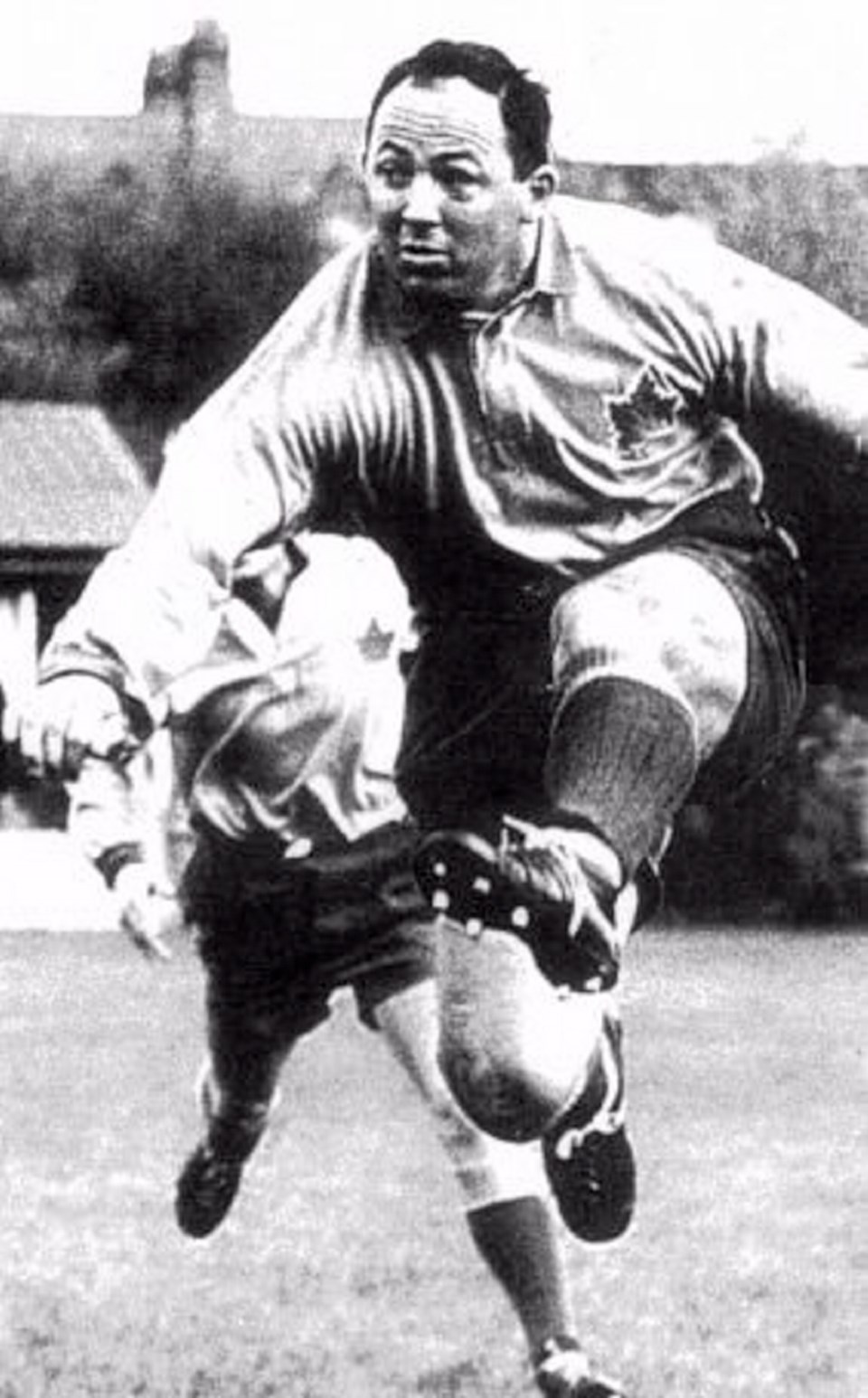There wasn’t a pair of uprights Don Burgess couldn’t clinically slice right through the heart.
Burgess, one of Canada’s greatest rugby kickers, influenced hundreds of young players as a coach and invented the Burge kicking tee. He died Tuesday at age 85.
He competed at the club, Island, provincial, national and international levels and was inducted into both the B.C. and Victoria sports halls of fame. He played 17 games for Canada and was the national team fullback through much of the 1960s, when Test matches were rare.
Brent Johnston, manager of the Castaway Wanderers club and former national team manager, said Burgess “was as good, if not better, in his era” than D.T.H. van der Merwe, the all-time Test tries leader for Canada.
Burgess, a true marksman with his foot, also played 33 games for B.C.
His greatest moment representing the province came when he converted the winning try by Peter Grantham and kicked a penalty goal as B.C. shocked the legendary British Lions 8-3 at Empire Stadium in 1966.
Most of his club career was spent with the Oak Bay Wanderers. He played all over the backfield and was noted for his kicking prowess, blazing speed and rapacious tackling. He played for the Vancouver Island Crimson Tide from 1958 to 1971, when he finally retired as a player at age 41.
“I enjoyed the club rugby, but the representative level was what I really loved,” he told the Times Colonist in 1998.
Burgess came from an athletic family. His father, Tom Burgess, operated the Esquimalt Boxing Club and was a noted trainer. His brother, Art Burgess, was physical education director of the Victoria YMCA, a B.C. Golden Gloves featherweight champion and a professional boxer.
Before he became a hall-of-fame rugby player, Don Burgess was a Victoria High School track star, setting a B.C. high school record of 4:35.2 minutes for one mile in 1951.
Burgess graduated from Vic High the following year as an all-rounder — in addition to track and rugby, he also played basketball — and attended Western Washington University in Bellingham on a track scholarship.
After university, he embarked on a teaching career, with stints at Brentwood College, Mount Newton and Parkland High School. He taught social studies and physical education, retiring in 1998.
He was married for 60 years to Barbara (formerly Hill), described in her 1953 Vic High annual as a “starry” grass-hockey player. They had three children: daughter Lisa and sons Doug and Mike.
Burgess coached the Parkland Panthers for 25 years and the Oak Bay Wanderers club for 28 seasons. With Paul Horne of White Rock, he co-coached the B.C. U-19 team and the Canadian Under-21 and Under-23 sides for 13 years.
Several generations of Island kickers — including Canadian World Cup captains Mark Wyatt and Gareth Rees, fellow national-teamers Bobby Ross and John Graf, and CFL kicking legend Dave Cutler — were mentored by Burgess.
“Don was a great guy, superb coach, teacher, mentor, who had a major impact on teams and individuals throughout the country — myself included,” said Wyatt, who scored 227 points in 29 Test matches for Canada, and is also in the B.C. and Victoria sports halls of fame.
“Don was the biggest single influence on my individual skill development. He had a huge amount of background experience and imparted it widely on a volunteer basis.”
In 1996, Burgess won the Jack Patterson Memorial Award for his 45 years of service to the sport, including 35 years as a high school rugby coach. He was also recognized for being Canada’s first rugby coaching organizer.
Burgess’s other great rugby success was the Burge tee, also known as the Tetley Tee (it was originally sponsored by the tea company). Burgess noticed during the first rugby World Cup in 1987 that kickers were still mounding dirt or sand to create a natural kicking tee.
The idea hit him to create a rubber-moulded tee and it became one of the great success stories in the world of rugby business, with hundreds of thousands of the tees sold worldwide. Almost all of the rugby kickers in the world now use a plastic tee of some sort.
“I’m a teacher first and foremost and I never got into this other thing to make money,” Burgess told the Times Colonist in 1998.
“I was a kicker and I wanted to make life easier for them in rugby. That’s all.”
It was the game itself that was paramount to Burgess. He was known to stop the car if he saw someone kicking on a field — even a random person — and bring out a bag of balls from the trunk and give tips.
“[Dad] never lost his passion for sport,” said son Mike Burgess.
Burgess is survived by wife, Barbara, daughter Lisa, sons Doug and Mike and five grandchildren.
A memorial service is planned in March. Details will be released on the Castaway Wanderers website.



